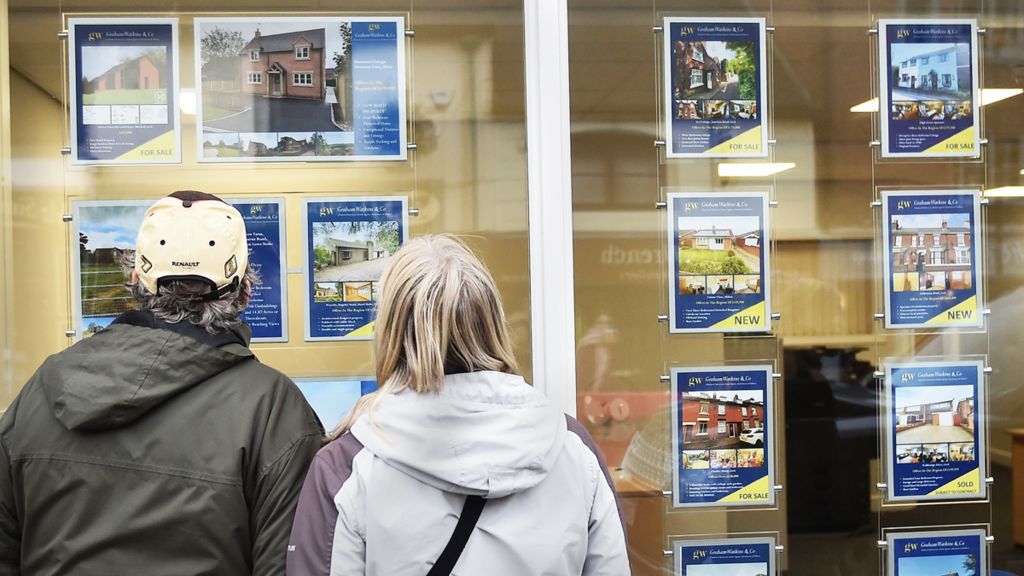ARTICLE AD BOX
 Image source, Getty Images
Image source, Getty Images
The government has cut its stamp duty tax in England and Northern Ireland.
What are the new stamp duty rates?
The amount of stamp duty you pay depends on the cost of the property.
Chancellor Kwasi Kwarteng announced new rates for England and Northern Ireland as part of the government's mini-budget.
- £0 - £250,000 (£425,000 for first time buyers) = 0%
- £250,000 - £925,000 = 5%
- £925,000 - £1,500,000 = 10%
- £1,500,000+ = 12%
The chancellor added: "We're going to increase the value of the property on which first-time buyers can claim relief, from £500,000 to £625,000."
He said the steps would take 200,000 more people out of paying stamp duty altogether, adding "this is a permanent cut to stamp duty, effective from today."
You can also use the government's Stamp Duty Land Tax (SDLT) calculator to find out how much you have to pay.
What are rates in Scotland and Wales?
In Scotland, the current rates for the Land and Buildings Transaction Tax are:
- £0-£145,000 (£175,000 for first-time buyers) = 0%
- £145,001-£250,000 = 2%
- £250,001-£325,000 = 5%
- £325,001-£750,000 = 10%
- £750,001+ = 12%
Scottish landlords pay an extra 4% Land and Buildings Transaction Tax on top of standard rates.
For example, a second-time buyer purchasing a home worth £425,000 in Scotland would pay £15,850.
Image source, Getty Images
Image caption,Estate agents say there are not enough properties coming on to the market at the moment
The current rates for Wales' Land Transaction Tax are:
- £0-£180,000 = 0%
- £180,001-£250,000 = 3.5%
- £250,001-£400,000 = 5%
- £400,001-£750,000 = 7.5%
- £750,001-£1.5m = 10%
- £1.5m + = 12%
Welsh landlords pay an extra 4% Land Transaction Tax on top of standard rates.
When do you have to pay it?
You have 14 days to pay stamp duty from the date of completion in England and Northern Ireland.
In Scotland and Wales you have 30 days from the point of purchase.
If it takes longer, you could face a fine, or be charged interest on the duty you owe.
How do you pay it?
House buyers often pay via their solicitors, but you can also pay directly online, or by cheque or cash in many banks.
It is also possible to add stamp duty to mortgage loans and increase your debt to cover the cost of the tax but you could end up paying significantly more in interest payments.
What effect does changing stamp duty have on the housing market?
During the pandemic, the government announced a stamp duty holiday to help home buyers whose finances were affected by Covid. It meant no stamp duty was payable on the first £250,000 of a property.
The holiday was originally due to end on 31 March 2021, but was later extended in England and Wales until 30 June, and then again in England until 30 September.
The stamp duty holiday was widely thought to have stimulated the housing market.
Estate agents reported a surge of interest in March 2021, as buyers and sellers rushed to complete property deals before the scheme was initially due to end.
Demand continued when the holiday was subsequently extended.
According to the Office for National Statistics (ONS), UK average house prices increased by 15.5% over the year to July 2022, up from 7.8% in June 2022.
The property market in Richmond, North Yorkshire boomed during the Covid stamp duty holiday period
However, many things may have contributed to rising house prices.
"The final closure of the stamp duty scheme at the end of September 2021 may have had no impact at all," says Nicky Stevenson, managing director at estate agents Fine and Country.
"Other factors are so much more important, namely the race for space, low supply, accidental savings [from the pandemic] and low interest rates."
How much money does stamp duty raise?
The government's annual take from stamp duty is about £14bn, according to latest HM Revenue and Customs figures.
That's roughly equivalent to 2% of the tax the Treasury collects.
What other help is there for first-time buyers?
The policy is designed to help more first-time buyers secure a home.
The scheme is available to anyone buying a home costing up to £600,000, unless it is a buy-to-let property, a second home or, in some cases, a new-build.
The Low-cost Initiative for First Time Buyers (LIFT) helps people in Scotland buy their first property either on the open market, or from a council or housing association. What is stamp duty and how much do I pay?
The Welsh government also runs various schemes to help people to buy a home.

 2 years ago
31
2 years ago
31








 English (US) ·
English (US) ·